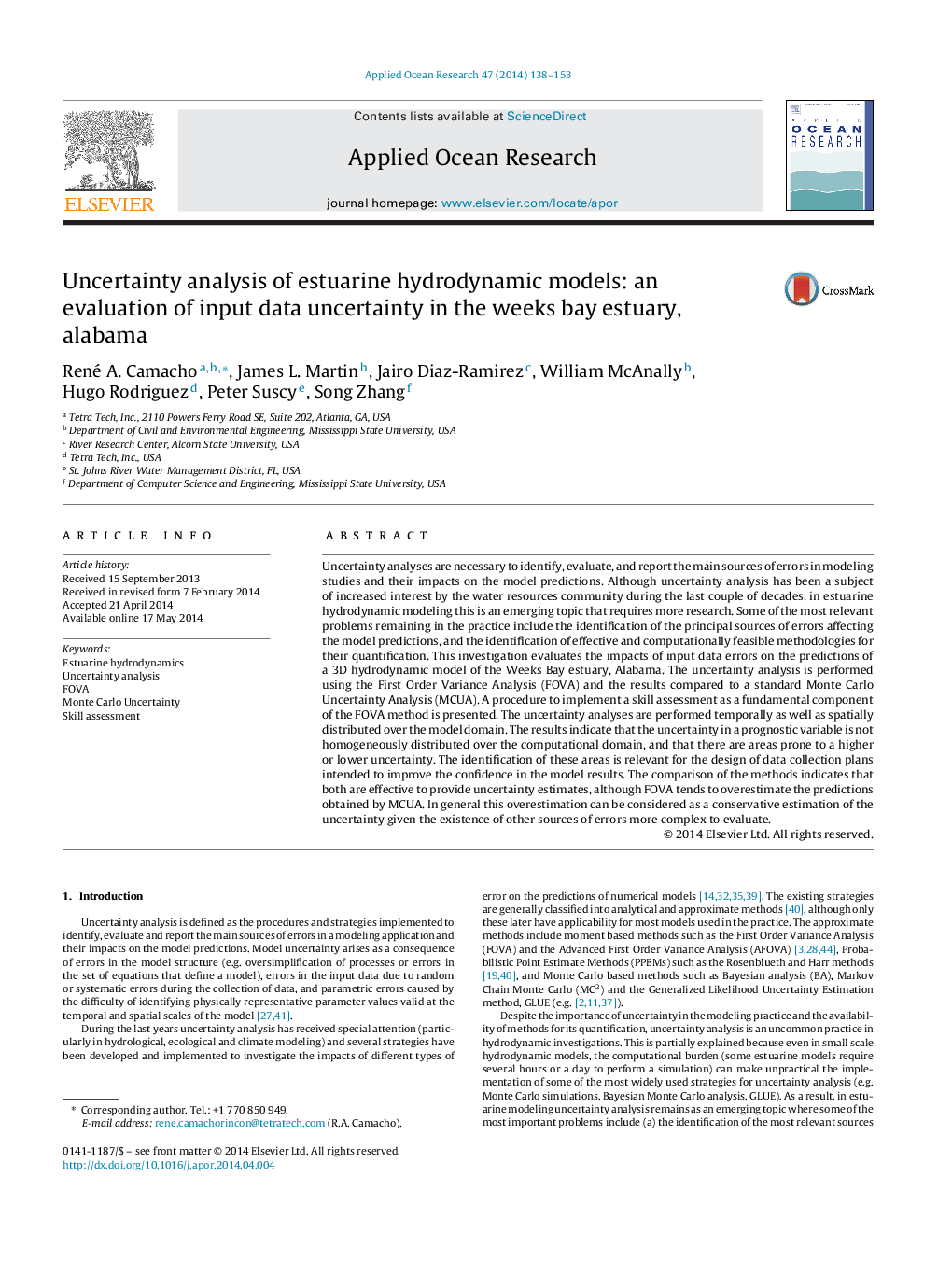| Article ID | Journal | Published Year | Pages | File Type |
|---|---|---|---|---|
| 1720047 | Applied Ocean Research | 2014 | 16 Pages |
•We evaluate the impacts of input data uncertainty in an estuarine hydrodynamic model.•We investigate the performance of FOVA compared to Monte Carlo Uncertainty Analysis.•FOVA is effective and provides simultaneously sensitivity and uncertainty estimates.•Compared to Monte Carlo Analysis, FOVA slightly overestimate the uncertainty estimates.•FOVA results can be consider a conservative estimate of input data uncertainty.
Uncertainty analyses are necessary to identify, evaluate, and report the main sources of errors in modeling studies and their impacts on the model predictions. Although uncertainty analysis has been a subject of increased interest by the water resources community during the last couple of decades, in estuarine hydrodynamic modeling this is an emerging topic that requires more research. Some of the most relevant problems remaining in the practice include the identification of the principal sources of errors affecting the model predictions, and the identification of effective and computationally feasible methodologies for their quantification. This investigation evaluates the impacts of input data errors on the predictions of a 3D hydrodynamic model of the Weeks Bay estuary, Alabama. The uncertainty analysis is performed using the First Order Variance Analysis (FOVA) and the results compared to a standard Monte Carlo Uncertainty Analysis (MCUA). A procedure to implement a skill assessment as a fundamental component of the FOVA method is presented. The uncertainty analyses are performed temporally as well as spatially distributed over the model domain. The results indicate that the uncertainty in a prognostic variable is not homogeneously distributed over the computational domain, and that there are areas prone to a higher or lower uncertainty. The identification of these areas is relevant for the design of data collection plans intended to improve the confidence in the model results. The comparison of the methods indicates that both are effective to provide uncertainty estimates, although FOVA tends to overestimate the predictions obtained by MCUA. In general this overestimation can be considered as a conservative estimation of the uncertainty given the existence of other sources of errors more complex to evaluate.
